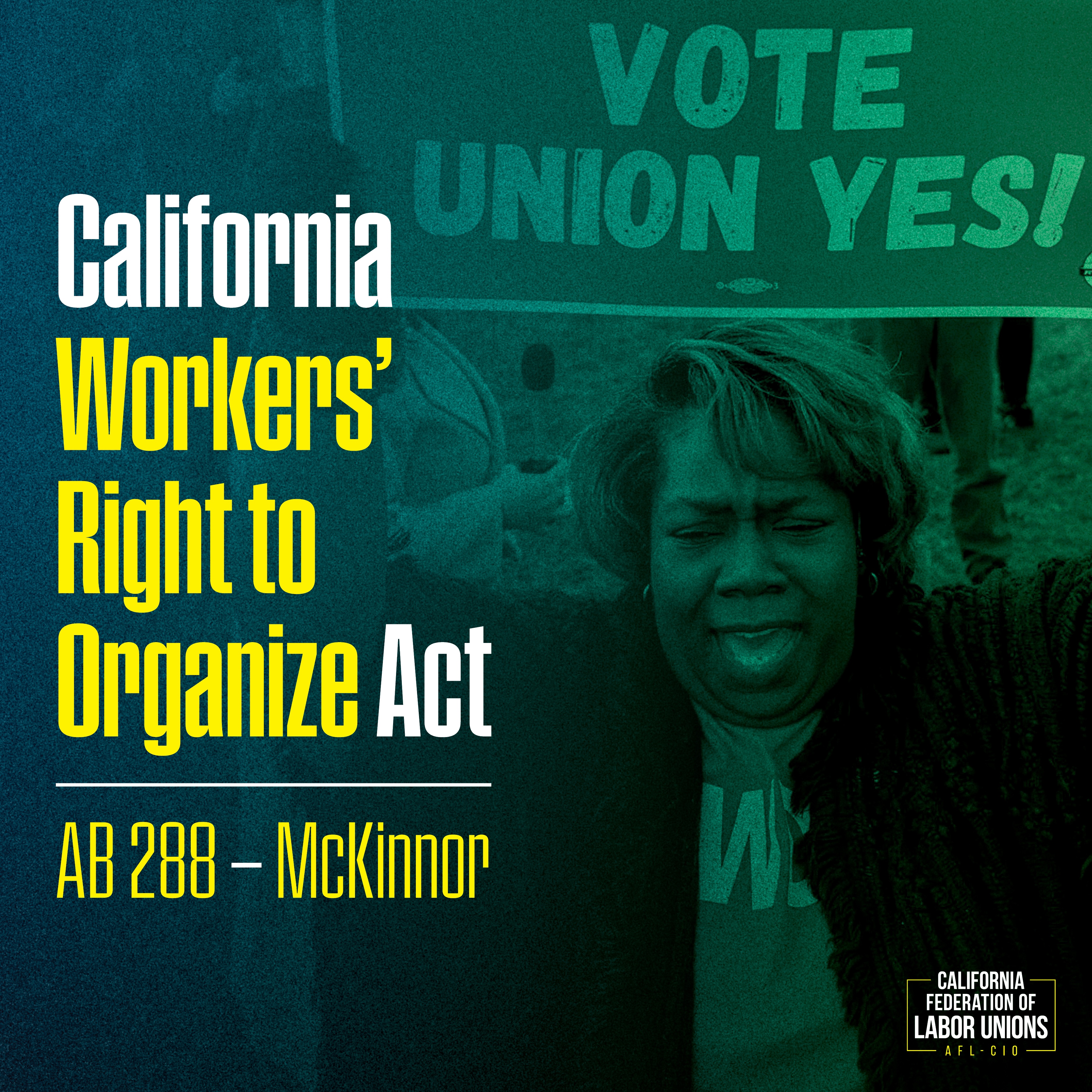|
|
Workers have the right to organize. Period.
This right – of free assembly, to organize, to form a union and to collectively bargain – is enshrined in law under the National Labor Relations Act (NLRA), as well as in the First Amendment of the U.S. Constitution and California state law.
This right is essential to workers’ economic security and human dignity. Only through collective action can we fight inequity and injustice.
That’s why, when federal labor law falls short on protecting workers, California should step in and ensure that the right to organize remains protected. This isn’t a new concept: California already does this for public employees and agricultural workers.
Now, it’s time to make sure California protects the rights of all workers when federal law falls short.
Assembly Bill 288, the “California Right To Organize Act,” by Assemblymember Tina McKinnor, D-Inglewood, does two things:
California cannot sit idly by while scofflaw employers benefit because the NLRB is besieged by lawsuits from corporations such as Amazon, SpaceX, Trader Joe’s and Starbucks, and plagued by insufficient funding and staffing.
While the number of filings for union elections increased 27% from 2023 to 2024, the increased caseload was not matched with sufficient resources; in fact, the NLRB has 62% fewer staff than it did the last time the caseload was this high.
Meanwhile, the number of unfair labor practices continues to climb. A recent report found that corporations are spending roughly $340 million a year on union-busting firms that engage in practices that interfere with workers exercising their protected rights.
Workers are following the rules, and they have a right to be recognized. If the federal government won’t do it, the state government must.
Justice delayed is justice denied. |
|
|
In Solidarity, Lorena Gonzalez |
|


